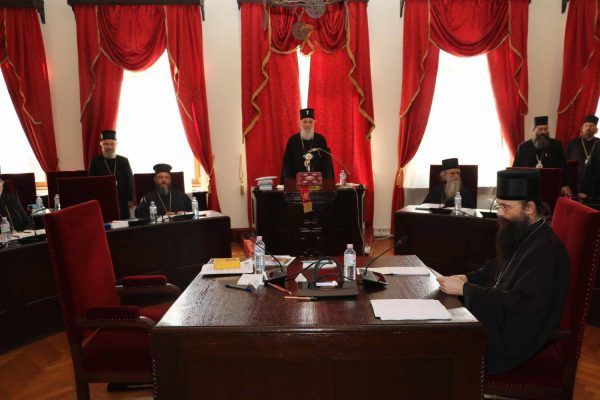The position taken by the Serbian Orthodox Church with regard to the church crisis in Ukraine caused by the recent decisions of the Patriarchate of Constantinople has been formulated by the Bishops’ Council which took place on November 6-7, 2018, in Belgrade.
As is known, by its decisions of October 11 the Patriarchate of Constantinople ‘revoked’ the decision made over 300 years ago to transfer the Metropolitan of Kiev to the jurisdiction of the Moscow Patriarchate thus encroaching on the canonical territory of the Russian Orthodox Church. In addition, in defiance of the canonical order, the Synod of the Church of Constantinople has admitted to communion the leaders of the Ukrainian schism and declared its readiness to implement a project ‘for Ukrainian autocephaly’.
The Bishops Council of the Serbian Orthodox Church stated with regret that ‘the Patriarchate of Constantinople has made a decision not grounded on canons to rehabilitate and recognize as bishops the two chiefs of the schismatic groups in Ukraine – Philaret Denisenko and Makariy Maletich with their episcopate and clergy’. It is pointed out in the council’s decision that in due time the former was canonically deposed and later anathematized and the latter was deprived of the apostolic continuity as spiritually belonging to the sect of the so-called self-ordained ministers ‘due to which the Sacred Council of Bishops’ regards this decision of the Synod of Constantinople as not obligatory for the Serbian Orthodox Church’.
As it is pointed out in the issued document, the Council of the Serbian Church does not recognize the above-mentioned persons and their followers as Orthodox bishops and clergy and therefore does not accept the liturgical and canonical communion with them and their supporters.
The Council addressed the Patriarchate of Constantinople and all the rest Local Churches with a proposal to consider in the nearest future the issue of autocephaly and the topic of Orthodox Diaspora at a Pan-Orthodox Council ‘in order to reaffirm and strengthen the conciliarity and unity of the Orthodox Church and to avoid in the future the temptation through which Holy Orthodoxy is going now’.

















